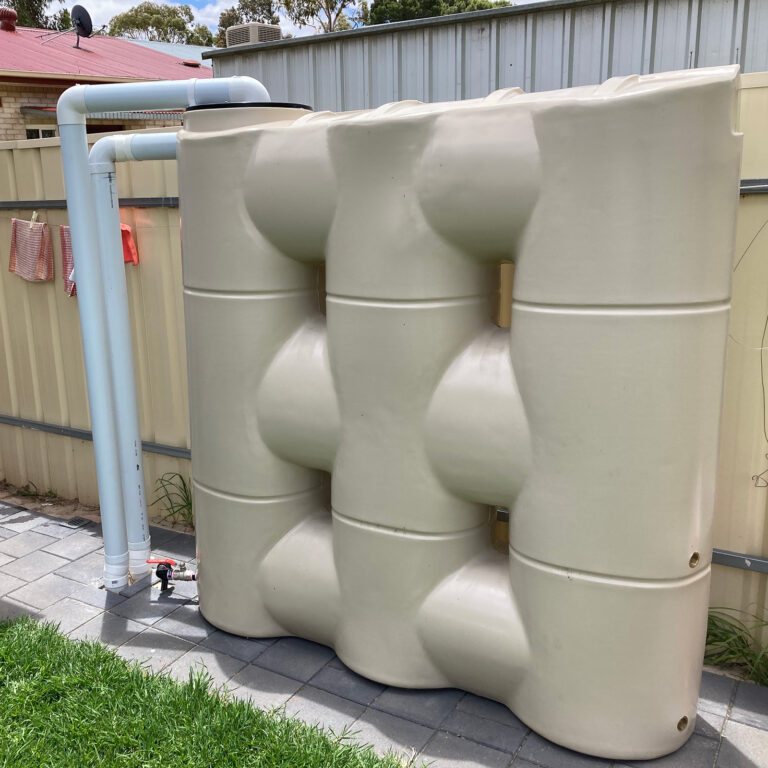Economical Slimline Water Tanks: Enhance Your Rainwater Harvesting
Checking Out the Various Uses of Rain Containers for Residential and Commercial Characteristics
As the worldwide emphasis on lasting living methods proceeds to heighten, the application of rainwater tanks in both residential and business settings has actually arised as an essential remedy. The complex uses of rain containers present an engaging case for their fostering, not only as a functional water-saving step but likewise as a testimony to liable resource management.
Advantages of Making Use Of Rain Tanks
Making use of rain storage tanks provides numerous benefits for both families and communities in regards to water conservation and sustainability. Among the vital advantages of utilizing rainwater tanks is the substantial decrease in reliance on keys supply of water - Slimline water tanks. By capturing and storing rainwater for later usage, people and neighborhoods can lower their need for cured water, ultimately reducing the problem on water treatment centers and reducing power intake related to water transport and therapy
Moreover, rainwater gathering via tanks offers a trustworthy different water resource during times of water constraints or shortages. This stored rainwater can be used for different non-potable purposes such as irrigation, purging commodes, and washing clothing, lowering the strain on standard water resources. Additionally, utilizing rain containers can result in set you back financial savings for both households and communities by reducing water costs and lowering the need for costly facilities developments to fulfill growing water demands.
Basically, the use of rain containers offers a sustainable and eco-friendly technique to water monitoring, profiting both individual users and the broader community in terms of water conservation, cost-efficiency, and durability.
Rainwater Storage Tank Use in Irrigation
Provided the advantages of rain storage tanks in saving water sources and minimizing dependence on keys water, a significant application depends on utilizing stored rainwater for irrigation purposes - Slimline water tanks. Rainwater harvesting systems can effectively collect and store rainwater, giving a lasting water resource for sprinkling gardens, yards, and agricultural fields. By using rain for watering, residential or commercial property owners can reduce their dependence on treated water resources, bring about set you back financial savings and environmental benefits

Among the main benefits of using rain for irrigation is its pureness. Rainwater is normally soft and cost-free from the chemicals and additives often located in keys water, making it excellent for nourishing plants without the risk of dangerous effects. In addition, rainwater is at ambient temperature level, which can benefit plant growth by staying clear of temperature shocks that can accompany cold mains water.
Rainwater Storage Tanks for Commode Flushing

Executing rain tanks for toilet flushing is a cost-efficient and eco friendly practice that can be quickly incorporated right into both residential and commercial properties. The saved rainwater can be used to flush toilets by attaching the tank to the existing plumbing system. This easy yet efficient service can significantly decrease water intake in a structure, especially in locations where water shortage is a problem.

Integrating Rain Storage Tanks in Landscape Design
These containers can capture and keep rainwater overflow from roofing systems, which can then be utilized for sprinkling gardens, lawns, and plants. By making use of rain for irrigation objectives, home owners can reduce their dependence on local water sources, leading to cost savings and conservation of precious water sources.
Along with giving a sustainable water source for landscaping needs, rainwater tanks can also assist in managing stormwater runoff. By catching rainwater that would or else flow right into tornado drains, these storage tanks can mitigate disintegration, decrease flooding risks, and avoid air pollution of natural water bodies. In addition, including rainwater storage tanks in landscaping can add to the total aesthetic charm of the residential property, showcasing a commitment to environmental stewardship.
Commercial Applications of Rainwater Containers
Making use of rainwater tanks in industrial settings uses a sustainable solution for water management and preservation, profiting businesses and the setting alike. Industrial applications of rainwater storage tanks vary and progressively preferred due to the expense financial savings and ecological advantages they supply. One vital business usage is for irrigation objectives, where harvested rain can be used to water landscaping, gardens, and farming areas bordering business homes. This can cause considerable reductions in water bills and dependence on metropolitan water resources.
Furthermore, rain accumulated in tanks can be treated and made use of for non-potable purposes within industrial residential properties, such as flushing commodes, cleansing, and cooling systems. In general, the incorporation of rainwater storage tanks in industrial setups offers a sensible and ecologically liable strategy to water management.
Final Thought
From watering to bathroom flushing and landscaping, the use of rain containers can aid save water resources and reduce water expenses. In general, the adaptability and sustainability of rain tanks make them Full Article an important investment for any kind of residential or commercial property proprietor looking to raise water efficiency.